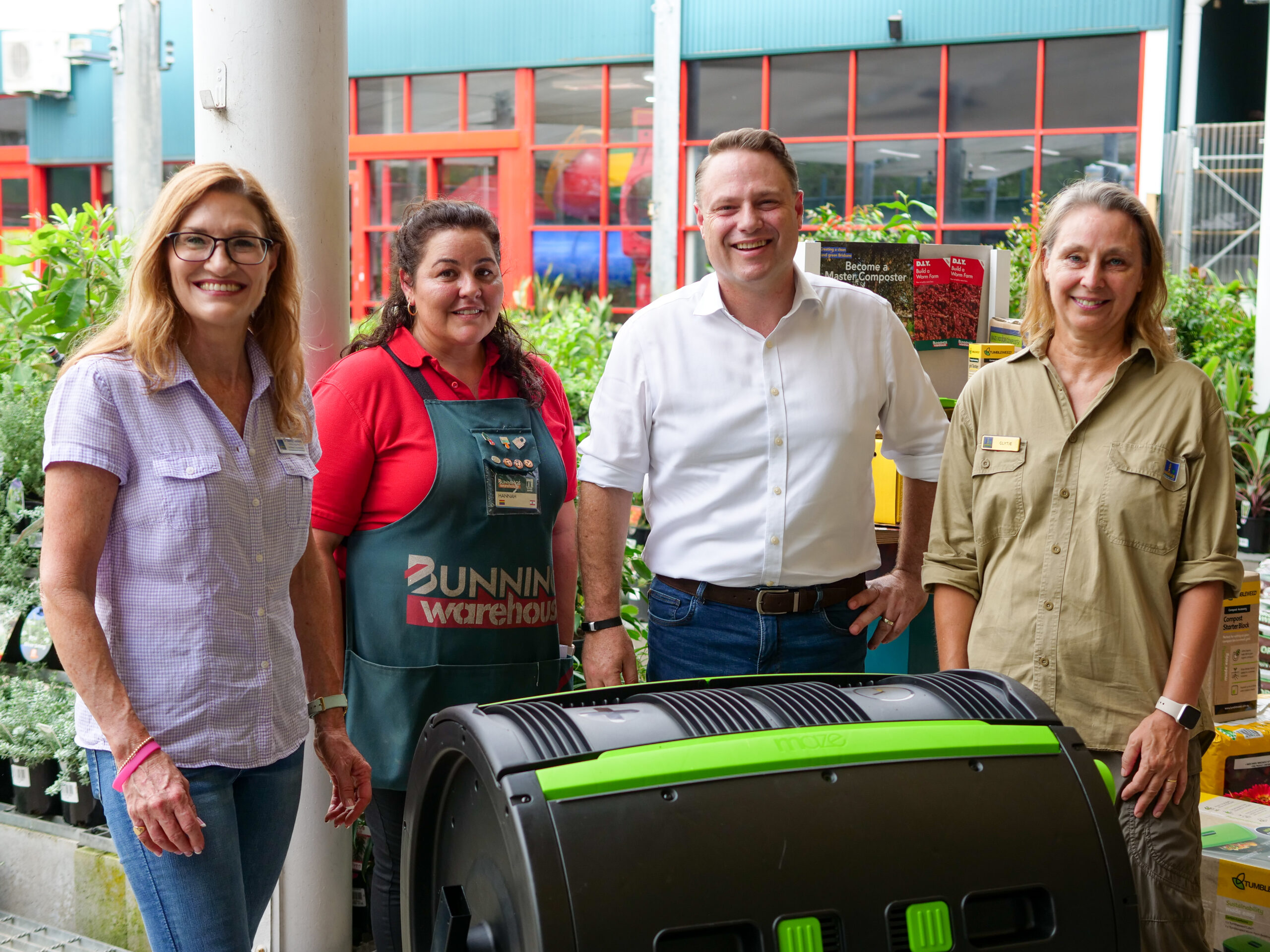Residents can access the Schrinner Council’s new and improved range of rebates for household food recycling equipment from today.
Lord Mayor Adrian Schrinner said the rebates of up to $200 are a key part of Council’s landmark Towards Zero Waste Strategy.
“Brisbane has a reputation for being a clean, green and sustainable city and these rebates play a key role in enhancing this,” Cr Schrinner said.
“The new and improved rebates make it easier and more affordable for residents to redirect the household food waste that would typically end up in landfill into their garden.”
Under the changes, rebates for compost bins and worm farms will increase from $70 to $100.
A new $200 rebate is available for residents who buy food waste dehydrators and in-sink food disposal equipment.
Rebates can be claimed by completing a form on the Council’s website which should be processed within 14 days.
The new Towards Zero Waste Strategy also includes:
- More locations for advanced community compost hubs to service apartments. (ie similar to New Farm).
- 50 new convenient community-based recycling hubs over five years for items such as batteries, CDs, glasses and tablet blister packs.
- 1,500 new park recycling bins across Brisbane.
- A new household soft plastics recycling trial in conjunction with industry.
- Digitise waste vouchers.
- Staged roll out of a citywide household food waste recycling service over the next four years.
- An investigation into incentivising anaerobic digestion and other technologies in apartment buildings.
- Installation of three smart bottle and can donation station machines in Mall Precincts.
- Introduction of bottle and can donation bins for event organisers with funds going to the Lord Mayor’s Charitable Trust and grassroots charities.
“Our Towards Zero Waste Strategy is not aimed at just helping residents reduce their waste, it’s about helping them reduce their exposure to the State Government’s waste levy which will continue to increase,” he said.
“We’re investigating more locations for advanced community compost hubs and installing 1500 new recycling bins in parks across Brisbane.
“We’re also creating 50 convenient community-based recycling hubs over 5 years and working with the private industry to investigate a household soft plastics recycling trial.
“Starting next month, an extra 5290 households will have access to food waste recycling collections, taking the number of households with access to this service to more than 12,000.”



